Breathtaking books
by Jade Westerman, Exhibition Project Officer
One of a curator’s hardest jobs is choosing what not to include in an exhibition. Our Breathing Books & Inspiring Incunabula sessions are a great opportunity to show off some of the wonderful breath-related books and items in the collections and archives of Palace Green Library that didn’t quite make the cut. During last month’s session we asked participants to pick out their favourites. Here are some of the prize-winners.
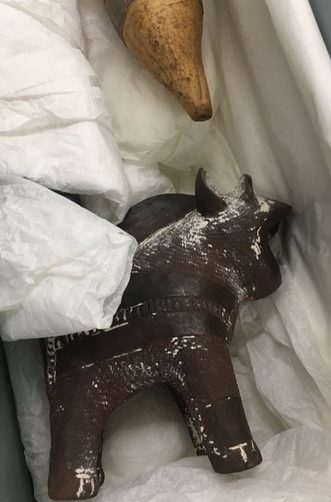
First Prize: No surprise that our judges award Best Breath First prize to this splendid pair of hyena-shaped pipes brought over all the way from South Sudan. These pipes would have been used to smoke tobacco. Like many pipes on display in our exhibition Catch Your Breath, tobacco smoking is an integral part of some culture and some spiritual practices around the world.
Second Prize: Here are the rules of the game Cat, played at Ushaw College Junior House (and perhaps only at Ushaw College…) until 1972. Photographs from Ushaw college archive show a game in progress as well as boys making their Cat sticks inside the school joinery. Cat – also known as Tip-Cat – is a game played with sticks. Various sports and activities – such as hiking, yoga, and swimming – rely heavily on our ability to control our breath. When we lose control of our breath, the activities that we’re so used to carrying out become increasingly difficult.
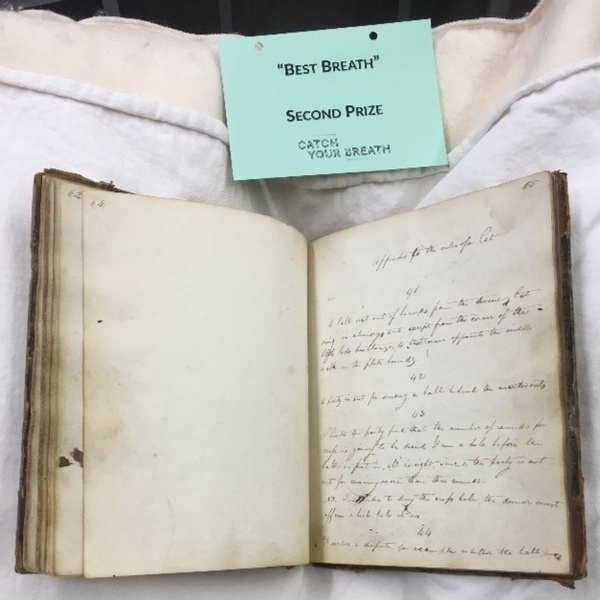
Third Prize: The Salvation Army are famous for their street singing – could this be the secret to their success? This 1989 guide from their library includes instructions on “how to make a beautiful sound” on page 6. Breathing is the key to singing well. At our event last month Under the Surface of Our Voices, our panel of experts included singers who discussed the importance of practicing breathing techniques to hit the notes and calm their nerves.
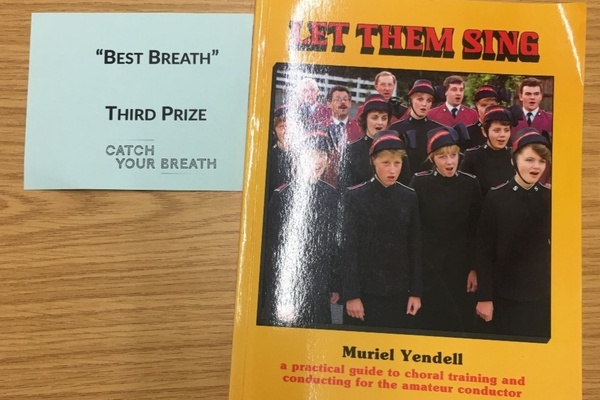
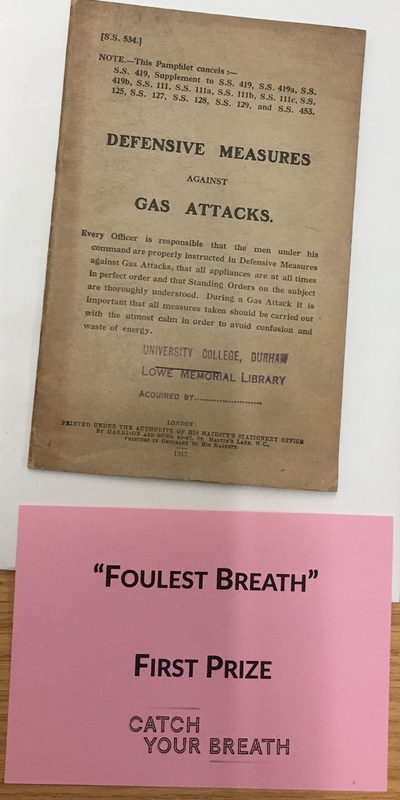
First Prize: This guide to “Defensive measures against gas attacks” dates from 1917. It includes practice drills for soldiers in the trenches, pictures showing how to fit gas masks to horses, and instructions for looking after your carrier pigeons in the event of a gas attack. Chemical warfare was first used globally during World War I, and had devastating effects on soldiers. This led to the advancement of certain equipment like gas masks, which contained charcoal as it was found to absorb poisonous gases well. During World War II, gas masks filters contained asbestos. Whilst this initially protected soldiers from the poisonous gases and chemicals released in the trenches, it may have eventually led to many individuals developing mesothelioma, a form of cancer in the lungs caused by inhaling asbestos. Remember: never wear a World War II gas mask!
Second Prize: This treatise on “taking the fume of tobacco, which very much in these days do too licenciously use” was written by Tobias Venner in 1650. Tobias was a physician in the 17th century, who suggested that patients could smoke tobacco to promote their health. However, he advised against smoking tobacco for pleasure, as it would cause risk to health if smoked in excess. Life of Breath co-investigator Dr Andrew Russell has written a lot on the cultural effect of tobacco. You can read some of his blogs on the Life of Breath website or take a lot at Andrew’s newly published open access book Anthropology of Tobacco: Ethnographic Adventures in Non-Human Worlds. He also delivered a talk in Palace Green Library on Thursday 28 February 2019 at 6pm.
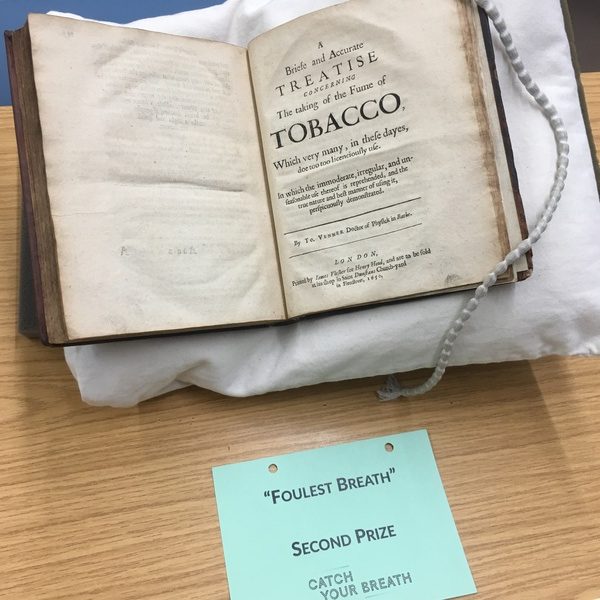
A late 18th century book of manuscript songs, including an exchange of cantata between Alessandro Scarlatti and Francesco Gasparini. The two 18th century Italian composers would send cantatas in response to the other. A cantata is a piece written for a voice with instrumental accompaniment.
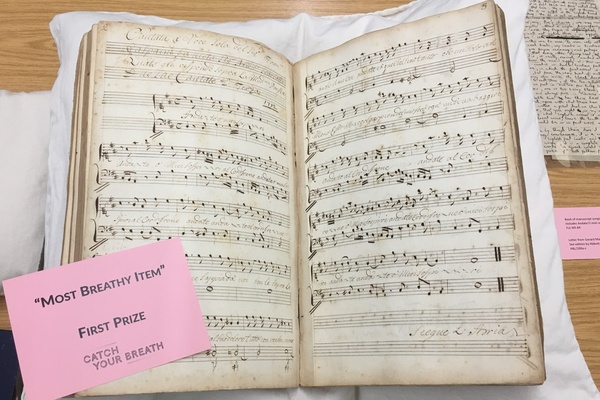
These items and others selected from the collections at Palace Green Library by the Archives and Special Collections team were available for public display. The final took place on Monday 11 March 2019 at 3.30pm in the History the Book gallery in Palace Green Library.



